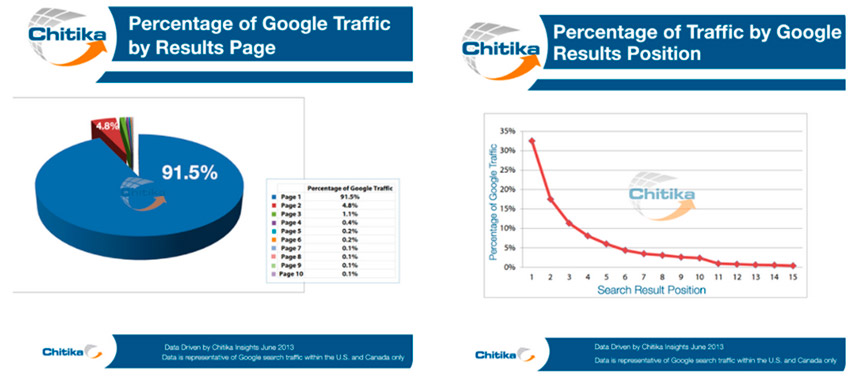As an infopreneur, you might be willing to expand globally.
But, have you already heard of failed expansions because of an audience’s misunderstanding? Are you fearing the same? Indeed, if you fail once, you may not have a second chance…
Having a strong strategy around your globalization is essential to succeed and reach your target. Thinking about translation is most of the time not enough. And that’s when translation localization comes into place!
But wait a minute…
What’s the difference between translation and localization?
Translation is like the grandpa of localization. It has been around for centuries when localization only appeared in the 1980s. With the arrival of the Internet and the globalization of all industries, a need for localization emerged, especially for online projects.
Translation could be defined as the simple process of textually adapting each sentence from one language to another. It’s really about the language itself.
On the other hand, localization is a way more comprehensive process. It goes beyond language to achieve a cultural fit and understanding.
It addresses cultural and non-textual assets as well as all linguistic mismatches.
The Localization Industry Standards Association (LISA) defines localization as follows:
“Localization involves taking a product and making it linguistically and culturally appropriate to the target locale (country/region and language) where it will be used and sold.”
This idea of “locale” is quite important because it’s another nuance between translation and localization.
The locale is a combination of a language and the place where it’s spoken, meaning that even if the language is the same, results can differ.
Let’s take the example of English for which the locale can be totally different. If your target market is Great Britain, your locale would be British English and all cultural references that fit to this region of the world.
In the case of you wanting to pursue the American Dream, and therefore expand to the United States, you should rather choose a locale based on American English and its culture scape.
In both cases, you should take care of…
- Spelling and grammar: with British English, z’s become s’s, as in “localize” becoming “localise”.
- Vocabulary: simple words but also expressions and idioms can differ.
- Visuals references and/or examples: Mr. Bean won’t make a New Yorker laugh as much as it will affect a Geordie
In short, to adapt a product to the “locale” of your target market, you should consider both the translation and the differences in culture, format, and usage.
And English was the easiest language to pick but think about Portuguese, Spanish, French, German, etc.
Now that you know the knitty-gritty about Translation vs. Localization, which option should you pick to make your info product thrive globally?
An info product’s value is highly influenced by the context of its use. Ensuring ease of use and sufficient functionality is therefore essential.
In other words, if you want to reach a new market with a simple translation of your info product, whatever its potential, you might crush all expected results because it won’t be culturally relevant.
With that in mind, market studies are not enough to decide where to go global. You should also ask yourself: HOW will I go global?
Localization has been chosen by dozens of industries, like e-commerce, gaming, finance and banking, healthcare and software.
Will you make the same choice to make the info product industry the next one in the list?
Here are the 5 first reasons why you should do so:
1. Localization will help you enter new markets with ease and avoid location-based filtering such as geoblocking, as well as simplifying everything from a legal perspective.
For example, TF1, a French TV channel, isn’t available in most of American countries.
On the other side, platforms such as Youtube, Facebook and Twitter are available globally.
Most traditional systems of films are region-specific, their worldwide availability is pretty rare. This led to a media globalization of relatively frictionless platforms of which infopreneurs can take the advantage.
By frictionless, I mean that apart from substantial self-regulation to avoid offending content, there are very few rules to use these platforms.
Your info product could therefore easily be accessible to all with a good localization practice.
2. It’ll also help you to have a cutting edge over your competitors.
There’s a huge difference between local and global competitors. The local ones benefit from a full knowledge of their audience when global ones may have more difficulties to reach this level.
In this case, localizing your info product is the good solution. While a translation will only allow you to reach a new market, localization will permit you to touch it.
Indeed, accessing new markets that way will give you access to a new perspective, you’ll enter a new feedback loop.
With this knowledge in your suitcase, you’ll be able to improve your info product while remaining totally relevant. And this doesn’t only apply to the new markets you’re exploring but also your local market.
Choose localisation for a win-win situation and for overpassing global competitors that didn’t make this choice.
3. Localization has a characteristic that translation doesn’t have: it gets personal.
By localizing your info product, you will address your customers’ needs more effectively because you’ll know them.
Once again, you’ll touch your audience thanks to a good culture fit.
Studies show that 55% of consumers prefer online shopping in their mother language and 53% consider buying in native language more convenient. And if they are more comfortable, they are more likely to buy.
Localization will help you increase your customer satisfaction thanks to the gain of trust it allows and, if it’s well done, it will also skyrocket your brand loyalty.
Regarding info products, a customer is more likely to subscribe to your Youtube channel, your podcast, your newsletters or whatever content you offer if he/she feels this content is personalized.
4. It’ll please your banker: Substantially higher revenues with just fewer extra costs.
Taking your info product to the next level and the global market will indeed offer higher revenues.
A bigger audience reach is synonymous with extra incomes. But, once again, the question is: how to do it appropriately?
Localizing your info product will help your brand loyalty. In a financial point of view, it means a minimized risk of return or refund as customers will be happy with your info product.
While translating your content can be easier, quicker and cheaper than localization at a specific moment, the final result might make you regret your choice.
After the Brexit white paper’s translation into more than 20 languages, the international community was baffled by the poor translation quality. Some language names were misspelled and millions of Tweets mocked it, calling it a ‘national humiliation.
Words’ choices were so bad that some Germans thought it hadn’t been done by professional translators…
Don’t take the risk of such a mediatic disaster for your info product.
I’m not saying localization is bulletproof and mistakes can’t happen but outsourcing your localization needs may allow you to benefit from specialized professionals who will be able to translate and adapt your info product to your target audience.
As native people, they are mastering the language but also have a perfect understanding of the culture and identity of your locale.
People buy an info product because of the uniqueness of its perspective.
More or less everything can be found online with some reliciency but your unique cutting edge, point of view or mastery is making the difference.
What matters here is the expertise. If your expertise is lost in a poor translation, you’re losing your target. Localizing professionally your unique message will keep it as powerful in its original language as in its localized ones.
5. Localized info products improve search engine rankings.
Let’s get a bit more technical. As you may know, Google archives everything you upload online.
The more information you give, the happier this search engine is. So make it happy by localizing your product!
Ok, it’s not totally selfless either. If you localize your info product, you won’t only translate it, you’ll also add appropriate metadata to each picture or video you upload.
You may also think about good hyperlinks or perfect keywords among other ideas. All of this will improve search engine rankings.
And… Thanks to a good ranking, customers will be able to find you easily.
If they are looking for something in their native language and your info product is well localized, they’ll find it faster. Just as a reminder, more than 90% of Google Traffic comes from a result show on the first page.
So, instead of translation, start looking for a localization that will place your info product there.

Source: https://www.blogdumoderateur.com/91-des-clics-sur-google-se-font-sur-la-premiere-page/
If these 5 reasons aren’t enough for you, schedule a call with us to chat about all opportunities the localization of your info product can offer.
Just before letting you go, we’ll give you a bonus:
Among the largest markets for localized products are France and Germany, and among the medium-sized markets are Brazil, Italy and Spain.
Having the right partner that can adapt your product to new locales is key to your global expansion.
Infohana offers you the localization of your info product for all these locales, so why not take your chance?
